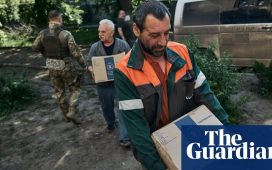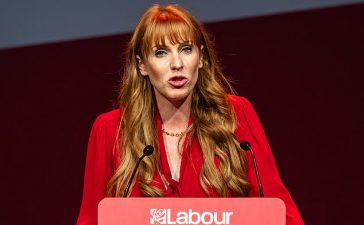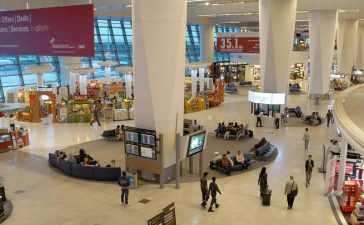Police and the security services have foiled 15 plots by Iran to either kidnap or kill British or UK-based individuals it considers “enemies of the regime”, counter-terrorism police revealed on Saturday.
The toll of attempted assassinations and abductions was made public hours after a London-based Iranian broadcaster announced it had moved operations to the US after mounting safety concerns against its journalists from Tehran.
Acting on advice from the Metropolitan police, Iran International TV “reluctantly” closed its London studios after state-backed threats meant it was no longer possible to protect the channel’s staff and the surrounding public.
Matt Jukes, head of counter-terrorism policing at the Met, said the decision came against a backdrop of mounting threats from hostile states.
“Our overall workload in investigating threats from foreign states has quadrupled over the past two years,” he said, adding that a range of protective security measures had been put in place to mitigate threats to other UK-based targets.
“Officers from counter-terrorism policing alongside local officers and other specialists from the Met continue to work in response to potential threats projected from Iran against a number of UK-based individuals,” added Jukes.
Last November, armed vehicles were deployed outside the Iran International studios in Chiswick, west London, after “severe and credible” threats were made against two of its UK-based channel’s journalists.
“In light of the ongoing investigation that follows the arrest of a man last weekend in that area [of west London], and despite extraordinary security measures, we still have serious concerns for the safety of people working at this company,” Jukes said.
Earlier, Mahmood Enayat, the station’s general manager, had announced the move across the Atlantic, saying: “I cannot believe it has come to this. A foreign state has caused such a significant threat to the British public on British soil that we have to move.”
Enayat described the escalation as a threat to the British public, calling it an “assault” on the values of sovereignty, security and free speech. “We refuse to be silenced by these cowardly threats. We will continue to broadcast. We are undeterred,” he said.
Jukes said the forced relocation underlined the pressures facing journalism in some parts of the world.
after newsletter promotion
Last week, the BBC offices in India were searched by tax officials weeks after the broadcaster aired a documentary critical of the Indian prime minister, Narendra Modi.
“The advice to relocate has not been given lightly. The situation that journalists face around the world and the fact that some journalists face such hostile intentions of foreign states while in the UK is a challenging reality that we are determined to confront,” said Jukes.
“This news may also be of concern to members of the wider Iranian diaspora in the UK. If anyone has concerns over their own safety or the safety of somebody else, then they should contact their local police force,” he added.











